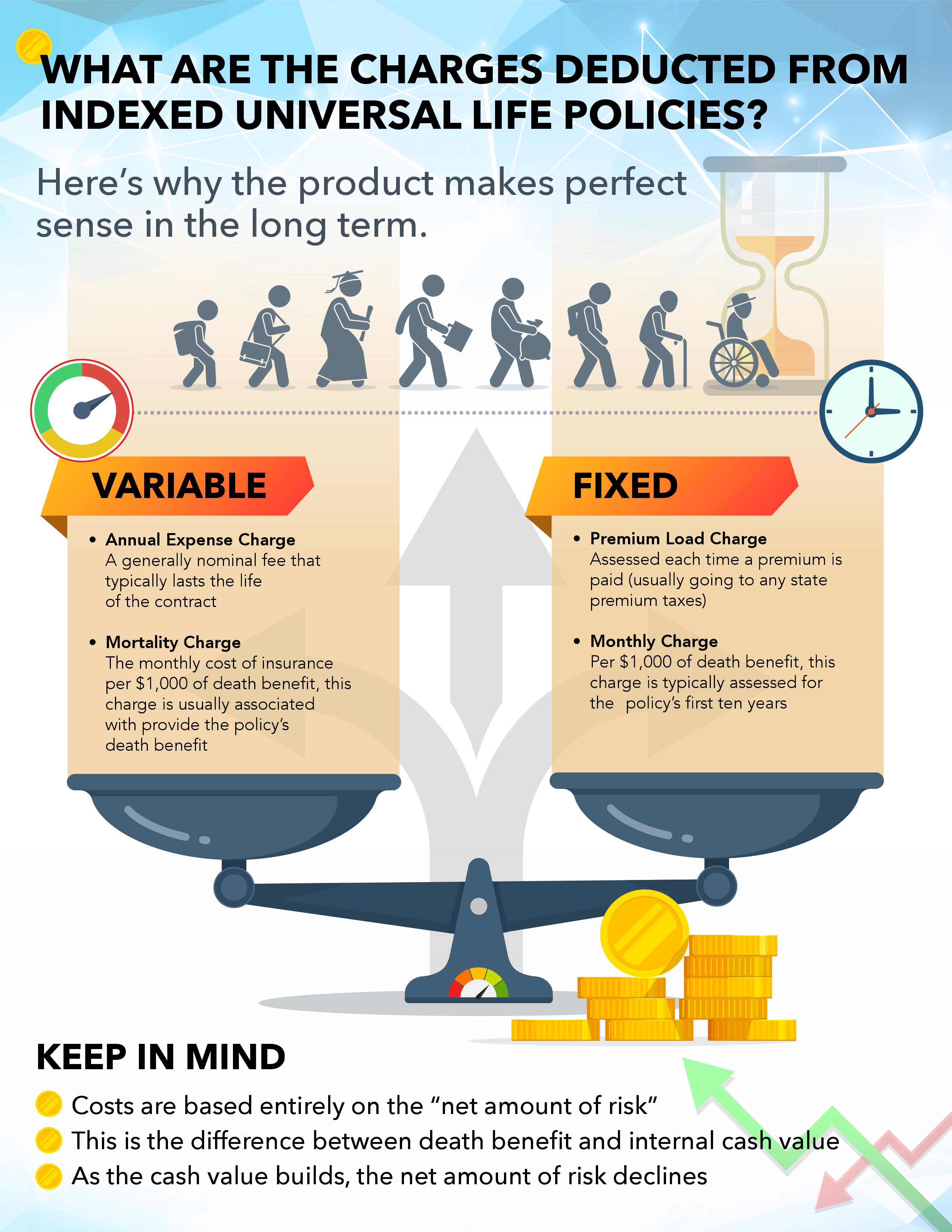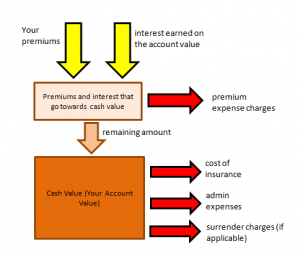All Categories
Featured
Table of Contents
Do they compare the IUL to something like the Lead Total Supply Market Fund Admiral Shares with no lots, a cost ratio (EMERGENCY ROOM) of 5 basis points, a turn over proportion of 4.3%, and an exceptional tax-efficient document of distributions? No, they compare it to some horrible proactively handled fund with an 8% lots, a 2% ER, an 80% turnover ratio, and a dreadful record of short-term resources gain distributions.
Mutual funds typically make annual taxable circulations to fund owners, even when the worth of their fund has dropped in worth. Common funds not just require income reporting (and the resulting yearly taxes) when the shared fund is rising in worth, yet can also enforce revenue taxes in a year when the fund has actually dropped in value.
That's not just how mutual funds work. You can tax-manage the fund, collecting losses and gains in order to lessen taxed distributions to the investors, yet that isn't somehow going to transform the reported return of the fund. Only Bernie Madoff kinds can do that. IULs prevent myriad tax obligation catches. The ownership of shared funds might require the common fund owner to pay estimated tax obligations.

IULs are simple to position so that, at the owner's death, the recipient is not subject to either revenue or inheritance tax. The very same tax decrease methods do not work virtually too with mutual funds. There are numerous, typically pricey, tax traps connected with the timed trading of mutual fund shares, traps that do not use to indexed life insurance policy.
Chances aren't really high that you're going to undergo the AMT due to your common fund distributions if you aren't without them. The remainder of this one is half-truths at best. While it is true that there is no revenue tax due to your beneficiaries when they inherit the earnings of your IUL policy, it is likewise true that there is no income tax obligation due to your heirs when they inherit a shared fund in a taxed account from you.
Index Universal Life Insurance Policy
The government estate tax obligation exemption restriction is over $10 Million for a couple, and expanding yearly with rising cost of living. It's a non-issue for the substantial majority of medical professionals, a lot less the rest of America. There are far better means to prevent estate tax obligation problems than acquiring investments with low returns. Shared funds may create income tax of Social Safety and security advantages.

The development within the IUL is tax-deferred and may be taken as free of tax earnings by means of loans. The plan proprietor (vs. the shared fund manager) is in control of his or her reportable revenue, hence enabling them to decrease or even eliminate the taxes of their Social Safety advantages. This one is fantastic.
Right here's another marginal problem. It holds true if you get a shared fund for say $10 per share just prior to the circulation date, and it distributes a $0.50 distribution, you are then mosting likely to owe taxes (possibly 7-10 cents per share) despite the reality that you have not yet had any kind of gains.
In the end, it's really regarding the after-tax return, not exactly how much you pay in tax obligations. You are mosting likely to pay even more in tax obligations by utilizing a taxed account than if you purchase life insurance policy. You're also possibly going to have more cash after paying those tax obligations. The record-keeping needs for possessing common funds are dramatically much more complex.
With an IUL, one's records are maintained by the insurance policy company, copies of yearly statements are sent by mail to the proprietor, and circulations (if any type of) are amounted to and reported at year end. This set is additionally sort of silly. Naturally you must maintain your tax obligation documents in instance of an audit.
Universal Insurance Payment
Rarely a factor to acquire life insurance coverage. Common funds are generally component of a decedent's probated estate.
Additionally, they undergo the hold-ups and expenses of probate. The proceeds of the IUL plan, on the various other hand, is constantly a non-probate distribution that passes outside of probate straight to one's named beneficiaries, and is for that reason not subject to one's posthumous financial institutions, unwanted public disclosure, or comparable hold-ups and prices.
Medicaid incompetency and life time revenue. An IUL can provide their owners with a stream of earnings for their whole lifetime, regardless of just how long they live.

This is advantageous when organizing one's events, and converting properties to revenue prior to an assisted living home confinement. Common funds can not be converted in a comparable manner, and are practically always thought about countable Medicaid possessions. This is another silly one advocating that bad individuals (you understand, the ones who require Medicaid, a federal government program for the inadequate, to spend for their retirement home) should utilize IUL rather than shared funds.
Best Iul Provider
And life insurance policy looks dreadful when contrasted relatively against a retirement account. Second, people that have cash to buy IUL over and beyond their retired life accounts are mosting likely to have to be awful at handling money in order to ever get Medicaid to spend for their assisted living home prices.
Chronic and terminal ailment motorcyclist. All plans will permit a proprietor's easy accessibility to cash from their policy, frequently forgoing any kind of abandonment fines when such people suffer a serious ailment, require at-home treatment, or become confined to an assisted living home. Shared funds do not provide a similar waiver when contingent deferred sales costs still put on a mutual fund account whose proprietor requires to sell some shares to fund the costs of such a stay.
Index Universal Life Insurance With Long Term Care
You obtain to pay more for that benefit (cyclist) with an insurance policy. What a terrific deal! Indexed universal life insurance policy provides fatality advantages to the beneficiaries of the IUL proprietors, and neither the proprietor nor the beneficiary can ever before lose money because of a down market. Mutual funds provide no such guarantees or death benefits of any kind of kind.
I absolutely do not require one after I get to financial freedom. Do I want one? On average, a purchaser of life insurance coverage pays for the real cost of the life insurance coverage advantage, plus the prices of the policy, plus the earnings of the insurance policy firm.
Mortality Charge For Universal Life Policies
I'm not entirely certain why Mr. Morais included the entire "you can not lose cash" once more below as it was covered fairly well in # 1. He simply wished to repeat the most effective marketing factor for these points I mean. Once again, you don't lose nominal dollars, but you can shed real bucks, in addition to face severe chance expense as a result of low returns.

An indexed global life insurance plan owner might exchange their policy for a completely different plan without setting off revenue tax obligations. A common fund proprietor can stagnate funds from one shared fund business to one more without marketing his shares at the previous (hence activating a taxed event), and repurchasing brand-new shares at the last, commonly subject to sales fees at both.
While it holds true that you can trade one insurance plan for another, the factor that people do this is that the initial one is such a horrible policy that also after purchasing a new one and undergoing the very early, negative return years, you'll still appear in advance. If they were sold the right plan the first time, they should not have any type of desire to ever exchange it and undergo the early, adverse return years once again.
Latest Posts
Iul Vs 401k Calculator
Equity Indexed Universal Life
Guaranteed Universal Life Insurance Quote